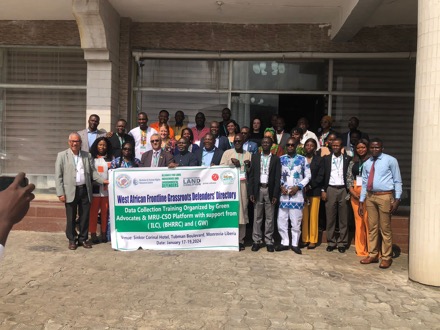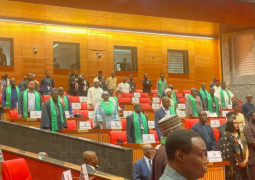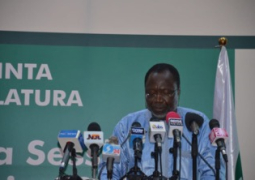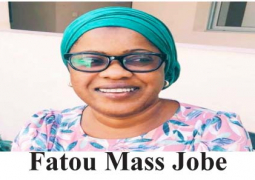
The 3-day data collection, also designed to document attacks against environmental defenders in West Africa was championed by Green Advocates International and the Mano River Union (MRU) Civil Society Natural Resources Rights Governance Platform – a network of land and environmental defenders in the subregion.
The training also sought at equipping data collectors from 16 West African countries with the requisite skills so as to monitor and document under-reporting of abuses against frontline defenders in indigenous communities in their respective countries.
Other international organisations such as the International Land Coalition, Business Human Rights Resources Center and Global Witness took part in the training in the form of sharing experiences, methodologies and monitoring techniques in documenting violations and promotion and protection of defenders.
Christian Mukosa, the United Nations High Commissioner for Human Rights in Liberia, described data collection as “very important” while urging collectors to always put into account the rights of the victims in data collection. He acknowledged the universal significance of human rights, emphasizing that they are not just a global standard but a fundamental necessity.
“So, getting data is very important, but the quality of the data is also something that we approach. We also need to make sure those organizations and those who work at the accounting level are well qualified to have data that has integrity and quality, as well as data that can serve,” he observed.
“I feel proud, and it was something timely, not only considering the synergy we held in the coastal part of the continent but also the issue we are hearing in many countries in terms of the protection of human rights. So, in itself, when I speak about data, it is very important, but the way we use data can be a problem,” he said.
Green Advocates International and the Mano River Union Civil Society Natural Rights and Governance Platform on June 30th, 2022 launched a report detailing the atrocious accounts of grassroots human rights defenders working across West Africa and Equatorial Guinea.
The report was a Baseline Assessment that examined the Economic, Social and Cultural Rights (ESCR) of defenders working mainly on Environmental and Land Rights issues in the region.
It elevates the work and situation of Rights Defenders on the frontline of the climate crisis and the environmental and social impacts related to the operations of multinational corporations, governments and other actors.
The report also focuses on the downstream consequences of these operations, which result in intensified conflicts between pastoralists and farmers, artisanal small-scale miners, large-scale commercial mining operators, and artisanal and industrial commercial fisheries.
The study reveals troubling trends across the region, pointing to the wanton killings, reprisal attacks, stigmatizations, arbitrary arrests and imprisonments, frivolous charges, unfair trials and increased government surveillance of defenders with little or no visibility given to their stories.
Read Other Articles In Headlines

EcoParl@25: First Ordinary Session for 2025 opens with renewed call for regional unity
May 22, 2025, 11:09 AM



